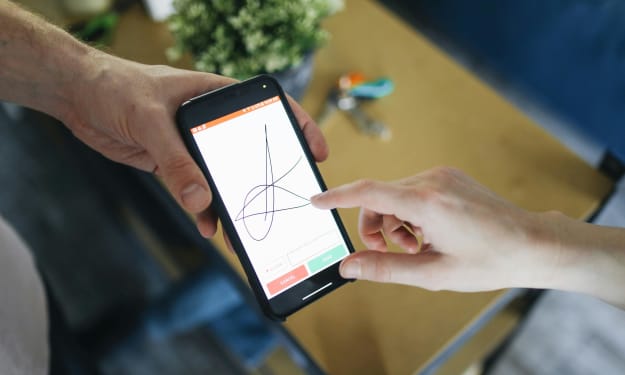Philippine Laws and Jurisprudence on Electronic Signatures
The Legal Framework and Implications of E-Signatures in the Philippines

When it comes to business, e-signatures play a crucial role in our world where reliability and efficiency are paramount. Experience showed that esignature in the Philippines is an important element in the processes of individuals and legal entities and contributes to the efficiency of documentation activities. Toward the realization of this aspiration as the nation embraces the digital frontier, it becomes vital to grasp the legal and jurisprudential aspects underlying e-signatures.
E-signatures in Contracts and Other Commercial Documents: The Legal Framework
Thus, the electronic signatures’ legal basis in the Philippines can be traced to the Electronic Commerce Act of 2000, which is also called Republic Act No. 8792. It shall be noted that this law provides for equal legal value between electronic documents and/or electronic signatures and their paper counterparts. The act also provides a legal meaning for the term electronic signature and defines it as any unique mark, label, or procedure, that is employed and completed or adopted to verify an electronic record or document.
Moreover, the Republic Act No. 8792 sets the foundation for respecting esignatures in the Philippines as a legal concept, as far as they meet all the requirements. The law states that the signature should be linked with the signer efficiently and it should be capable of identifying the signer and the same should be created by the signer with the help of means which are under his or her control. This will ensure that the functionality and the legal recognition of the e-signature in the Philippines is as good as the traditional handwritten signature.
Adoption and Usage of ICT in Education and Training Programs:
The use of esignature in the Philippines has become popular, especially with the COVID-19 situation, which requires the reduction of face-to-face interaction and the use of digital technologies. Significant players that have continued to gain ground in the e-signature market are UNAWA and SignSecure, both organizations that can help companies easily make the switch to digital methods.
For instance, UNAWA has a suite of digital solutions that include secure e-signatures that are adopted by legal standards in the Philippines. Its platform guarantees that the electronically signed documents are as legal as the signed ones and are not susceptible to forgery making it suitable for real estate, finance, and many more fields.
Another key contender is SignSecure which offers a highly effective e-signature solution that is very secure and intuitive. With integrated encryption and authentication, SignSecure guarantees information security about electronic documents and their content. It is this level of security that is necessary for the protection of user’s trust and confidence especially in personal and business transactions.
Jurisprudence on E-Signatures
The Philippine courts have upheld the validity and enforceability of electronic signatures in recent cases, supporting the law created by Republic Act No. 8792. Some of the court cases are shown below in which the judiciary has upheld the validity of e-signatures as a means of entering into contracts and legal documents.
An example of it relates to a conflict arising out of an electronically signed contract on its genuineness. Here the court supported the e-signature claiming that the electronic document fulfilled all the requirements stated in the Electronic Commerce Act. This decision highlighted the judiciary's commitment to endorse digital innovation and appreciate the dynamic aspects of commerce and communications.
Furthermore, through the Administrative Matter No. 01-7-01-SC in the year 2001 made by the Supreme Court, electronic documents and signatures became accepted in judicial activities. This administrative matter set out the rules for the electronic filing and serving of pleadings and further illustrated how innovative the judiciary is in incorporating IT solutions into the legal framework.
Challenges and Future Prospects
However, as much as there is advancement and acceptance of e-signatures in the Philippines, there are still some drawbacks. A major concern therefore is the general ignorance or lack of knowledge regarding the legal acceptability and admissibility of e-signatures. Today, numerous people and companies are still using a notarized document, as they can worry about conflict over e-signatures.
Thus, the recognition of e-signature as a legal and legitimate way of signing documents needs further educational programs and informational campaigns to be conducted. Moreover, more advanced technologies over time including implementing better encryption and checking compatibility with other formats will also contribute to increased trust in to use of e-signatures.
Moving forward, e-signature prospects in the Philippines seem rather promising. Since adopting new technologies is the future trend, the use of e-signatures will also increase even more as time goes on. Companies such as UNAWA and SignSecure will have a crucial responsibility in this evolution as they deliver secure and easy-to-use technologies couched in legal compliance.
Thus, the esignatures in the Philippines symbolize a giant leap in enhancing the procedures for carrying out transactions. The nation has a solid and favorable legal and jurisprudence base for e-signatures, and e-signatures are expected to soon become an essential part of the nation’s digital infrastructure. With the increased popularity and advancement in technology, the potential of e-signatures will certainly be realized in the future to revolutionize the way of affairs of Filipinos in all business transactions and personal dealings.
About the Creator
Enjoyed the story? Support the Creator.
Subscribe for free to receive all their stories in your feed. You could also pledge your support or give them a one-off tip, letting them know you appreciate their work.





Comments
There are no comments for this story
Be the first to respond and start the conversation.